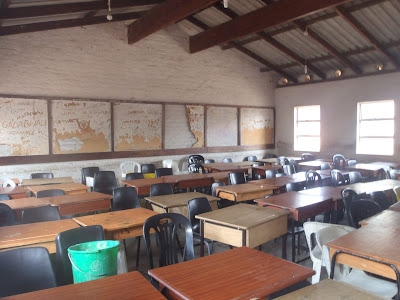Someday, the AIDS crisis will be over. Remember that. And when that day comes -- when that day has come and gone, there'll be people alive on this earth -- gay people and straight people, men and women, black and white, who will hear the story that once there was a terrible disease in this country and all over the world, and that a brave group of people stood up and fought and, in some cases, gave their lives, so that other people might live and be free.’
These words were spoken in 1988 by the late AIDS activist Vito Russo. I keep a print-out of these words on my bedroom wall and derive hope and strength every day from them.
The context for Russo’s speech was, in many ways very different than today’s reality. He was in New York in the 1980s when AIDS was ravaging the gay community and anti-retroviral therapy was not yet available. It was different in that we didn’t know as much about HIV as we do today. We didn’t have treatment. There was a lot of fear as many people, whole communities of gay men passed away.
Although it was a very different context, I am angered and saddened so say that many of the fundamental issues that made the epidemic so devastating in Russo’s time are still raging today.
HIV continues to affect the most vulnerable of us around the world. It is the number one cause of death in women of reproductive age worldwide. It disproportionately affects those living in poverty. Children are still being born HIV positive, although mother-to-child transmission is preventable.
Throughout the world, stigma and marginalization continue to perpetuate the spread of HIV.
It doesn’t come as a surprise that after years of colonialism, the slave trade and continued oppression, that Sub-saharan Africa carries the global burden of HIV/AIDS (an estimated 68% of people living with HIV live in sub-Saharan Africa).
Within a Canadian context, women from the African and Caribbean diaspora, Aboriginal peoples, injecting drug users and men-who-have sex with men bear the burden of HIV. Is it a coincidence that these are arguably the most marginalized groups within Canadian society? If so:
-Why would a woman who has emigrated from an African or Caribbean HIV endemic country be 8 times more likely to contract HIV, after arriving in Canada, than me?
-Why would an Aboriginal Canadian be 3.6 times more likely to contract HIV than me?
 There are approximately 34 people million living with HIV in the world today. More than 1 million people die of AIDS-related death every year. 7 thousand people aquire HIV every day.
There are approximately 34 people million living with HIV in the world today. More than 1 million people die of AIDS-related death every year. 7 thousand people aquire HIV every day.For these, and many other reasons, I believe that HIV and AIDS is one of the grossest injustices of our time.
The UN AIDS ‘Getting to Zero’ Campaign puts forth the goals of ‘Zero new HIV infection, Zero discrimination and Zero AIDS-related deaths’ by 2015 and encourages each and every one of us to be an activist.
There are tons of ways to be an activist! Of the top of my head, here are a few:
- Get tested! Know your HIV status.
- Choose to reduce harm to yourself and others by using a condom or a clean needle.
- Talk about HIV with family and friends. Talking breaks down barriers and reduces stigma!
- Wear a red ribbon.
- Add a twibbon on twitter or facebook (http://twibbon.com/join/The-end-of-AIDS-2)
- Learn more about HIV - educate yourself and share the information with others! (http://www.unaids.org/en/resources/presscentre/fastfactsabouthiv/)
- Donate time, resources or money to a local or international HIV/AIDS cause.
- Now for the shameless plug: If you are interested, I am raising funds to buy Bicycle Ambulances to be used in rural areas of Malawi to take people living with HIV/AIDS to the hospital. Distances can be very long, and those too stick to walk are sometimes carried or pushed in wheelbarrows. Bicycle ambulances (a bike with a stretcher on wheels attached to the back) provide a safer, faster and more dignified way to travel. Check it out at : http://www.uniterra.ca/assets/Uploads/Take-action/Campaigns/BikeForAids/bike-for-AIDS-info-sheet-EN.pdf or make a donation at http://my.e2rm.com/personalPag
e.aspx?SID=3220148&langPref= en-CA !
25 years after his speech, Vito Russo’s words are still relevant. Now, more than ever, we need to consider ‘Why we fight’ and if we are really fighting. We have started to turn the tide on HIV, but there is still so much to be done. Today I invite and challenge you join that brave group of people that stands and fights so that others may live and be free.


















































